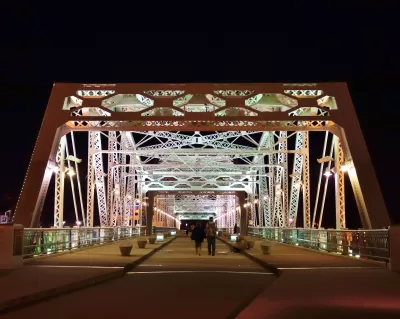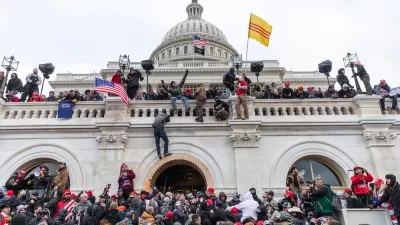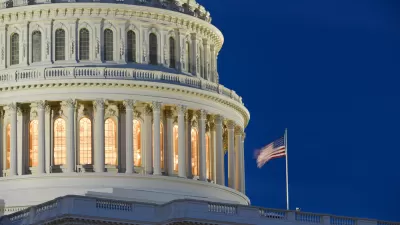The new administration's policies are likely to promote clean energy and equity goals and focus resources on maintenance of existing infrastructure.

Policy analysts believe that under the incoming Biden administration, federal transportation policy will be shaped by climate change and equity concerns more than ever before. John Gallagher writes "it was made clear during the presidential campaign that climate change and civil rights would be a major focus of the next administration." As politicians acknowledge the harmful effects of exclusionary and racist policies and the role of government in shaping healthy, safe, and effective transportation networks for everyone, new leaders like Biden's Transportation Secretary nominee, Pete Buttigieg, must broaden their collaboration with diverse communities and place equity at the forefront of decision making.
Attorney Fred Wagner is hopeful that the new administration will close out the era of major highway projects and focus funds and resources from Biden's "Build Back Better" initiative on maintenance, transit, and micro-mobility projects that have a positive impact on historically underserved communities. The proposed $2 trillion package addresses water, energy, and broadband infrastructure, calling for an "equitable, clean energy future" that eliminates "the old economy's structural weaknesses and inequalities" and advances racial equity. Now that Congress has passed the latest COVID-19 relief bill, infrastructure could be next on the table.
FULL STORY: What transportation can expect from Biden’s first 100 days

Maui's Vacation Rental Debate Turns Ugly
Verbal attacks, misinformation campaigns and fistfights plague a high-stakes debate to convert thousands of vacation rentals into long-term housing.

Planetizen Federal Action Tracker
A weekly monitor of how Trump’s orders and actions are impacting planners and planning in America.

In Urban Planning, AI Prompting Could be the New Design Thinking
Creativity has long been key to great urban design. What if we see AI as our new creative partner?

King County Supportive Housing Program Offers Hope for Unhoused Residents
The county is taking a ‘Housing First’ approach that prioritizes getting people into housing, then offering wraparound supportive services.

Researchers Use AI to Get Clearer Picture of US Housing
Analysts are using artificial intelligence to supercharge their research by allowing them to comb through data faster. Though these AI tools can be error prone, they save time and housing researchers are optimistic about the future.

Making Shared Micromobility More Inclusive
Cities and shared mobility system operators can do more to include people with disabilities in planning and operations, per a new report.
Urban Design for Planners 1: Software Tools
This six-course series explores essential urban design concepts using open source software and equips planners with the tools they need to participate fully in the urban design process.
Planning for Universal Design
Learn the tools for implementing Universal Design in planning regulations.
planning NEXT
Appalachian Highlands Housing Partners
Mpact (founded as Rail~Volution)
City of Camden Redevelopment Agency
City of Astoria
City of Portland
City of Laramie





























